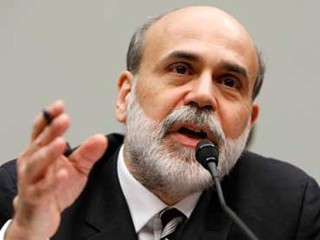ROUNDUP: US stimulus could end recession this year, Bernanke says
 Washington - If massive government action to revive the US economy is successful the recession affecting the world's largest economy could begin to turn around this year, Federal Reserve Chairman Ben Bernanke said Tuesday.
Washington - If massive government action to revive the US economy is successful the recession affecting the world's largest economy could begin to turn around this year, Federal Reserve Chairman Ben Bernanke said Tuesday.
Testifying before the US Senate Banking Committee, the central bank chairman said the government stimulus is essential to break the cycle of adverse feedback that helps to keep the economy down.
"If actions taken by the administration, the Congress and the Federal Reserve are successful in restoring some measure of financial stability - and only if that is the case, in my view - there is a reasonable prospect that the current recession will end in 2009 and that 2010 will be a year of recovery," Bernanke said.
President Barack Obama earlier this month signed into law a 787- billion-dollar stimulus package of government spending and tax cuts designed to jump start the economy. He has also proposed a 75- billion-dollar programme to help homeowners facing foreclosure, as part of government efforts to address the crisis that began in the housing market and has spread worldwide.
"As you are aware, the US economy is undergoing a severe contraction," Bernanke said in beginning his testimony.
He said government action to aid banks and ease credit conditions have had a favourable effect on the economy, but added that "despite these favourable developments, significant stresses persist in many markets."
He stressed that the economy will continue to sharply contract this year with downside risks outweighing upside risks and a full recovery likely to take more than two or three years.
Fed economists predict that gross domestic product will decline 0.5 per cent to 1.25 per cent over 2009.
Bernanke indicated that the Federal Reserve was likely to keep interest rates at "exceptionally low levels" in the near future to boost spending.
The testimony came as a private survey of US consumer confidence showed new lows in Americans' views of the economy. The private New York-based Conference Board said its index of consumer confidence fell to 25.0 in February from 37.4 in January. Also Tuesday, a measure of housing prices showed a drop of 18.5 per cent in December from a year earlier. (dpa)